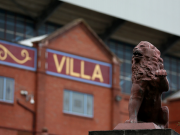With a large Liverpool contingent travelling to Naples ahead of their team’s Champions League clash against Napoli, the club’s Fan Services account sent out a warning.
The account, @LFCHelp, published a tweet warning Reds fans to ‘not congregate in public areas’ and advised them to ‘avoid becoming isolated in areas away from the port area of the city’.
Not only that, but they continued by telling their followers to ‘avoid the city centre’ because if they did decide to visit that area, they ‘may be targeted for theft, robbery or assault’.
Now, as you can imagine, that hasn’t exactly gone down well in Italy, especially with one of the Napoli websites, Napoli Più.
Noticing the message, the website make it clear to their readers they aren’t happy with how the Liverpool Fan Services Twitter account handled it, stating they warned their fans ‘in the most vulgar way possible’.
Fans should not congregate in public areas and should avoid becoming isolated in areas away from the port area of the city. We strongly recommend you avoid the city centre. If you chose to visit, please beware that you may be targeted for theft, robbery, or assault.
— Liverpool FC Help (@LFCHelp) September 6, 2022
This is described as a ‘truly delusional note’ from the English club, ‘given that the city of Naples is one of the most welcoming there are’.
They also recall that, in the past, when Liverpool fans did turn up in the city, there were never any problems.
In fact, the website go one step further, claiming that ‘the only thing the English fans could fear is the Maradona Stadium’, because it will be full to the brim, where Napoli supporters ‘will do nothing but cheer for the team’.
They also add that those in charge of the account may have a ‘short memory’, since they seem to have forgotten that in 2010, ‘English fans were the authors of a series of ambushes around the city’ of Liverpool back when the two sides were competing in the Europa League.
The website end by saying they ‘firmly dispute the Liverpool communication’, and deem it ‘full of clichés and highly provocative’, hoping for Napoli to respond to ‘protect the image of the city, which in this period, is the object of foul and vulgar attacks’.
























